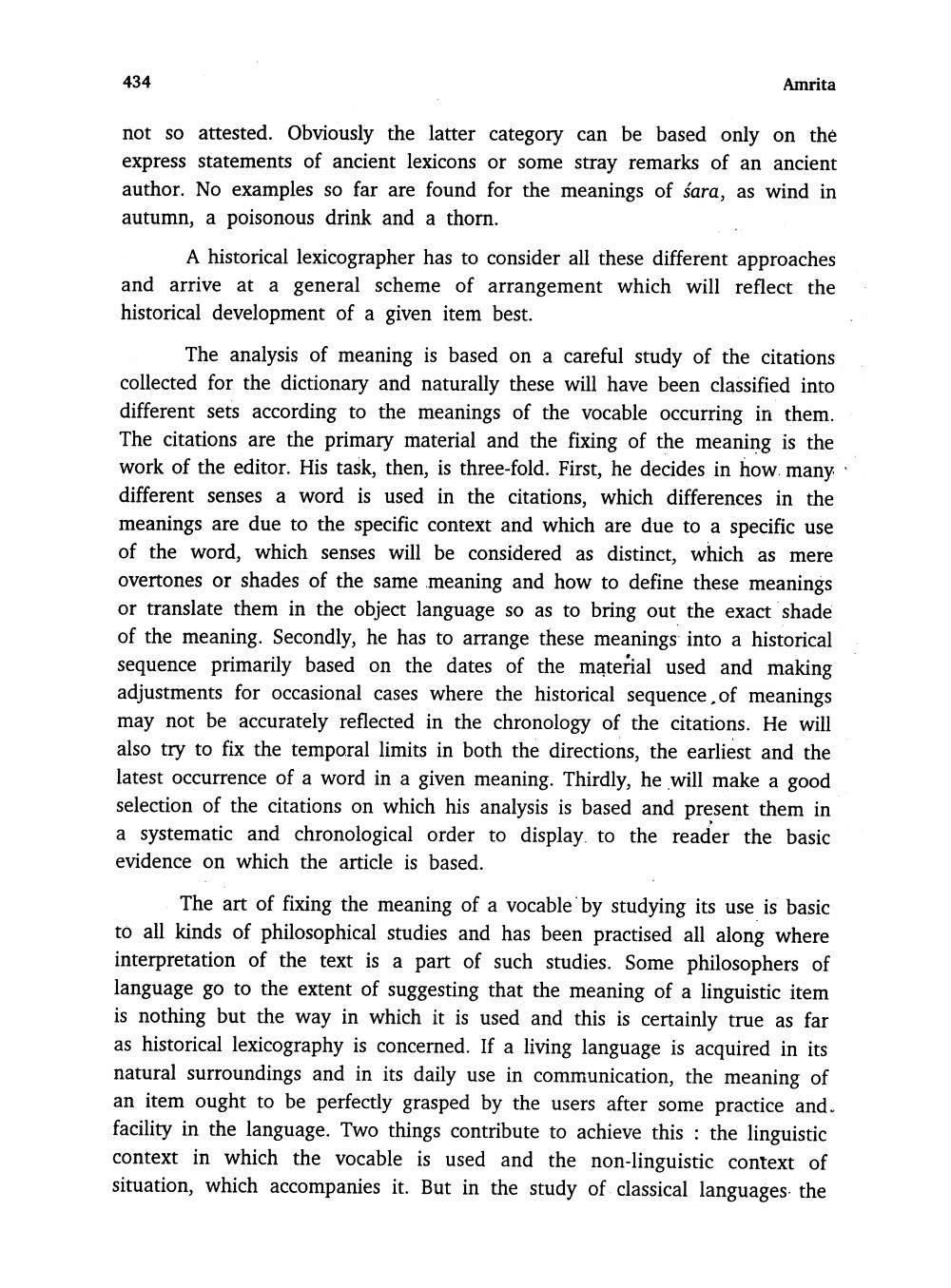________________
434
Amrita
not so attested. Obviously the latter category can be based only on the express statements of ancient lexicons or some stray remarks of an ancient author. No examples so far are found for the meanings of śara, as wind in autumn, a poisonous drink and a thorn.
A historical lexicographer has to consider all these different approaches and arrive at a general scheme of arrangement which will reflect the historical development of a given item best.
The analysis of meaning is based on a careful study of the citations collected for the dictionary and naturally these will have been classified into different sets according to the meanings of the vocable occurring in them. The citations are the primary material and the fixing of the meaning is the work of the editor. His task, then, is three-fold. First, he decides in how many different senses a word is used in the citations, which differences in the meanings are due to the specific context and which are due to a specific use of the word, which senses will be considered as distinct, which as mere overtones or shades of the same meaning and how to define these meanings or translate them in the object language so as to bring out the exact shade of the meaning. Secondly, he has to arrange these meanings into a historical sequence primarily based on the dates of the material used and making adjustments for occasional cases where the historical sequence, of meanings may not be accurately reflected in the chronology of the citations. He will also try to fix the temporal limits in both the directions, the earliest and the latest occurrence of a word in a given meaning. Thirdly, he will make a good selection of the citations on which his analysis is based and present them in a systematic and chronological order to display, to the reader the basic evidence on which the article is based.
The art of fixing the meaning of a vocable by studying its use is basic to all kinds of philosophical studies and has been practised all along where interpretation of the text is a part of such studies. Some philosophers of language go to the extent of suggesting that the meaning of a linguistic item is nothing but the way in which it is used and this is certainly true as far as historical lexicography is concerned. If a living language is acquired in its natural surroundings and in its daily use in communication, the meaning of an item ought to be perfectly grasped by the users after some practice and. facility in the language. Two things contribute to achieve this : the linguistic context in which the vocable is used and the non-linguistic context of situation, which accompanies it. But in the study of classical languages, the




